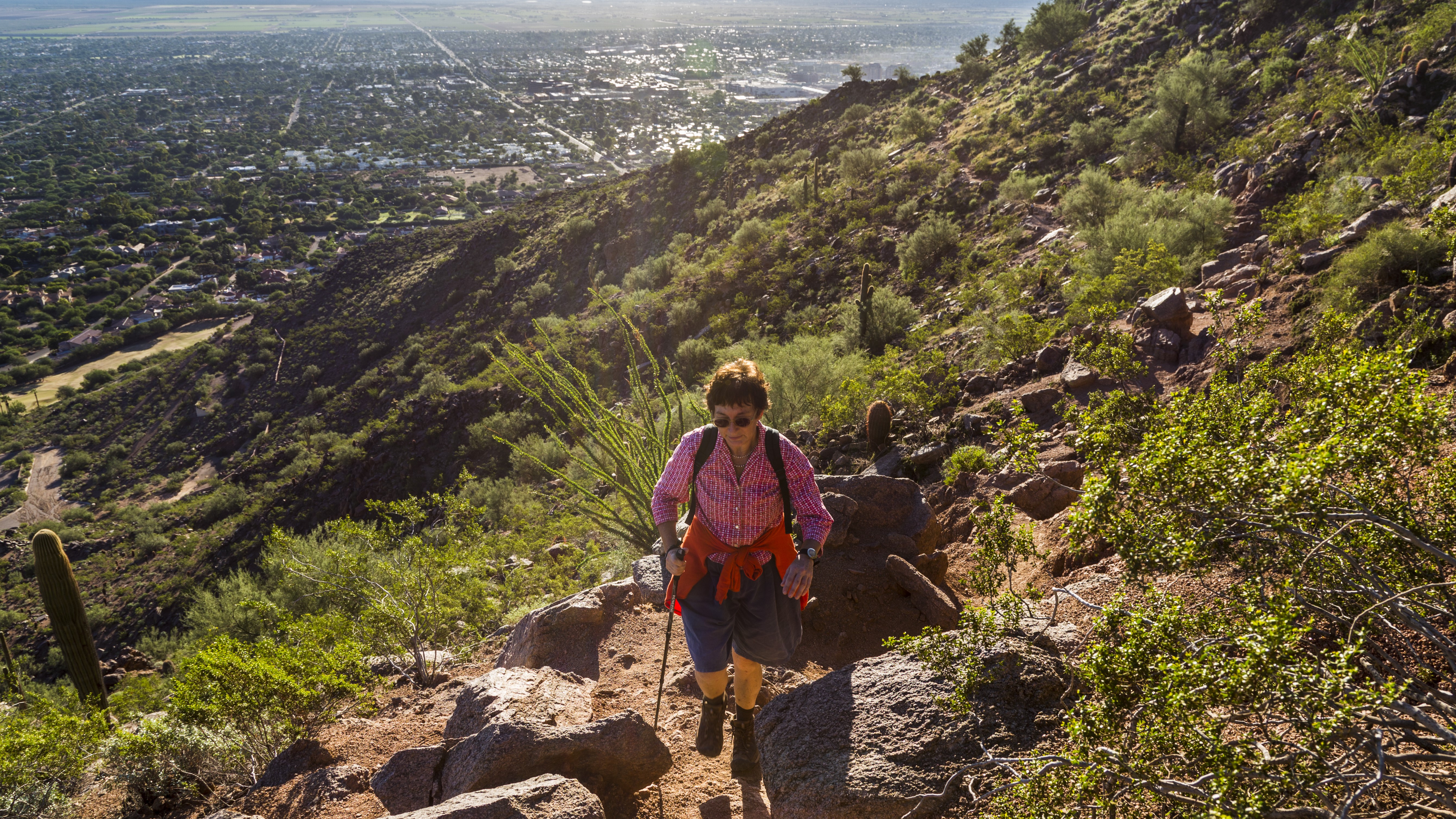
Some areas out west are still seeing plenty of action in their ski pants, but officials in the Phoenix are announcing public safety measures after the area had its first 100-degree day – and several heat-related mountain rescue callouts.
On Sunday, the mercury reached 100 degrees in the Arizona city, though only for around 10 minutes, but according to reporting by Fox 10, it was enough for at least two hikers to require rescue. In one incident, a 60-year-old man was airlifted to the hospital by helicopter after he passed out. Other hikers reportedly gave him chest compressions for 45 minutes before help arrived. Meanwhile, a woman was helped off the trail after being located by a Phoenix Fire Department drone.
The rescues come as city officials announce that at least three popular trails will be closed to hikers this summer on days when temperatures reach triple digits. When the National Weather Service issues an Excessive Heat Warning – usually when there is a heat index of at least 105°F for more than three hours per day for two consecutive days – Camelback Mountain's Echo and Cholla Trails and all trails associated with Piestewa Peak Trailhead will close from 9 a.m. to 5 p.m.
"It’s very serious. Last summer, we saw hundreds of people die in the Valley of the sun from the heat. It's strong enough, unfortunately, that it takes lives," says Phoenix Fire Capt. Scott Douglas.
Last summer, we reported on a hiker who went hiking with his dog on Piestewa Peak during an Excessive Heat Warning resulting in his dog's death due to heat exhaustion. Now, dogs are prohibited from any Phoenix trail when the mercury reads 100°F or higher.

Hiking in hot weather
Hiking in hot weather can increase your chances of dehydration and heatstroke, which can be deadly. The City of Phoenix issues the following guidelines for all hikers in the area to help them stay safe:
- Dress appropriately: wear proper hiking shoes, clothing, hat, and sunscreen.
- Bring water: hydrate before you go. Have plenty of water in your water bottle or hydration bladder, more than you think you need. Turn around and head back to the trailhead before you drink half of your water.
- Keep in contact: carry a mobile phone.
- Team up: hike with others. If hiking solo, tell someone your start and end times, and location.
- Be honest: do you have a medical condition? Asthma, heart problems, diabetes, knee or back problems? Don't push yourself – even trained athletes have been caught off guard by getting dehydrated on Arizona trails.
You can learn more in our articles on what to wear for hiking in hot weather and 5 expert tips for exercising outdoors safely during a heatwave.







